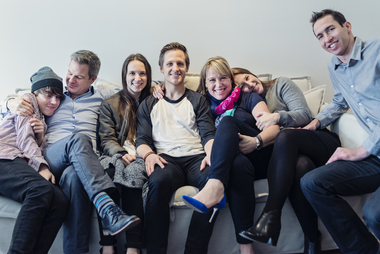Statistics from the Pew Research Center note that a full 42 percent of all Americans are in a “step” relationship. This means that you or someone you know is very likely one of the 95.5 million people who are part of a blended family.
Estate planning for the millions of Americans who are divorced, remarried and widowed is available and essential to a secure financial future. However, at Rochford Langins Jarstad, we see how complicated things can seem for people and we understand why. The stakes are higher if you want your estate left to a current spouse and family versus your former spouse.
The problem? Spouses and families, current and former, are not always able to come to an amicable agreement on important issues. Let’s look at some important questions that need to be answered: Who will take care of any children in the event of a family death? How can you come to a fair division of assets?
This is why considering all facets of your situation in advance will minimize the number of disputes over the estate plan and prevent enmity among surviving family members.
Here are some questions that may loom large in a blended estate plan:
- How would you like your assets handled when you die?
- Who would you like to make decisions in your place if you were unable to make them for yourself?
- Who should take care of your children — a stepparent or natural parent?
- Who would you like to assume guardianship of any children under 18 — a current spouse? The natural parent? An ex? Will the kids get to weigh in on this decision?
- What will happen to the surviving spouse — how do you balance the needs of children from the first spouse with the needs of the second spouse?
- Would you like your surviving family to have a significant amount of decision-making power over your estate — or a very limited amount? You may need to establish a trust to lay everything out in detail.
- How flexible will you be in a conversation together with your attorney, current spouse and former spouse?
- Are you currently sharing a residence in a community property state, or living in separate locations? You need to consider whether your spouse may have a fair claim to some portion of the assets, over your children from an earlier marriage.
- When you’re ready to contemplate these questions, take time to consider the wealth and age differences between you and all spouses — past, present and future. If you plan on remarrying, will you want to enter into a prenuptial agreement? If there’s a big age difference, will the younger spouse be taken care of?
With a better idea of what you think should happen in the case of your untimely demise, you should discuss your plans with an attorney at Rochford Langins Jarstad, we are experienced in helping blended families and can formalize them, add legal structure and remember that there are various complexities that stem from working with blended families.
Planning not only ensures the prosperity of your surviving family, but can also give structure to the division of your assets and legacy after you’re gone.
In bringing together multiple families, you’ll need to ensure that everyone receives the inheritance that he or she was intended to receive. Even though newly blended families might still be adjusting to their new lives together, estate planning shouldn’t be put off any longer than necessary. You want to devise a plan that will accomplish your goals. Call one of the attorneys at Rochford Langins Jarstad today so that we can help you get started!
